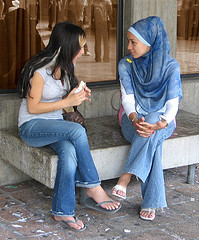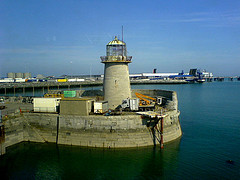1. Paco is going to visit Ireland
Paco is on the train to Holyhead. He has had a wonderful time in Cardiff and now he has a mixture of feelings. On the one hand, he is sad to leave this city and his new friends but, on the other hand, he is excited about visiting Ireland. Holyhead is in the north west of Wales and it has a busy ferry port. This time Paco is going to take a different type of transport. Stena Line is the biggest ferry company in Europe, and it only takes about three hours from Holyhead to Dublin. Travelling by sea is going to be a new adventure and this way Paco can avoid flying, which he does not like very much.
Our friend is going to see every place in Dublin, the capital city of the Republic of Ireland, and then, he is also going to visit other places in the area. He would like to make some friends as he did in Cardiff, but he was lucky to meet Paul. Maybe he has to travel on his own this time. Or maybe not... you never know!
Read the text again and decide if the following statements are true or false.
2. Many ferries stop in Holyhead.
Verdadero Falso
3. Stena Line is not very popular.
Verdadero Falso
4. The journey from Holyhead to Dublin on the ferry is quite long.
Verdadero Falso
5. Paco is planning to visit as many places as possible.
Verdadero Falso
- What form of the verb is used after 'going to'?
- What do you need to say before 'going to'?
Complete the sentences with one of the following verbs:
take, read, visit, listen, try
1. Paco is going to Trinity College in Dublin.
2. He is going to a ferry in Holyhead.
3. He is going to a typical Irish beer.
4. He is going to to some music while he is on the train.
5. He is going to some leaflets about Dublin.
| AFFIRMATIVE | NEGATIVE |
INTERROGATIVE |
| I am going to eat |
I'm not going to eat |
Am I going to eat? |
| You ___ going to eat |
You aren't going to eat |
Are you going to eat? |
| He/She/It is going to eat |
He/She/It ___ going to eat |
Is he/she/it going to eat? |
| We are going to eat |
We ___ going to eat |
___ we going to eat? |
| You are going to eat |
You ___ going to eat |
___ you going to eat? |
| They are going to eat |
They ___ going to eat |
___ they going to eat? |
 |
| By Beppie K, C. Commons |
You might have heard the word 'gonna' before, either in conversation or surely in songs. This is a colloquial way of saying 'going to'. It is good that you know what it means but you must never use it in writing or in a conversation which is not colloquial.
Example of colloquial conversation between friends:
- What are you gonna do tonight?
- I'm gonna go out.
